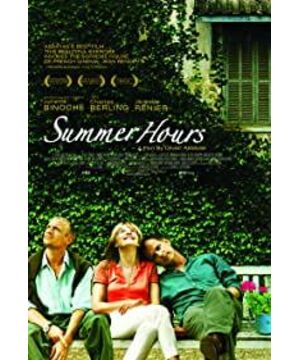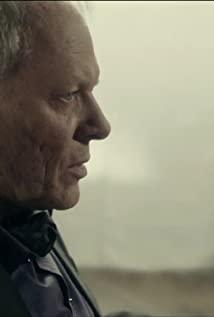Domestic fans may know Assayas because of his "HHH" ("Portrait of Hou Xiaoxian", a documentary about Hou Xiaoxian), but ordinary audiences know him more probably because he was Maggie Cheung’s ex-husband—the latter’s emerging The status of the urban petty-bourgeois screen goddess is now at stake. The director and performance of "Clean", which they collaborated with, were not very good, and won the best actress in Cannes in 2004. Maybe it was because there were really no outstanding competitors that year (the excellent participating films that year were not men's dramas). -"Fahrenheit 911" and "Old Boy" are cartoons-"Ghost in the Shell", "Shrek 2").
In "Les destinées sentimentales" (Les destinées sentimentales) filmed by Assayas in 2000, the actor Charles Berling, who played the priest, said in the film: "Our houses cover us, like a shepherd's tent." This is obviously a sentence. Religious words express the loneliness of human beings in the world and the compassion of God. This time, in "Summer Time" (also starring Charles Berling), the director repeated the theme with a more mundane and relaxed attitude.
In the film, the three brothers and sisters prepare to sell their old house after the death of their mother, a house full of art and old stories-full of art, because their mother’s uncle is an outstanding artist Having lived here, he and his friends decorated the house with oil paintings, contemporary designs, decorative prints and glass craftsmanship. The old stories are the ambiguous feelings between the mother and her uncle, and of course their own memories. .
The opening of the film is very warm. A group of children ran on the lawn behind the house, looking for their "treasure map" carefree. We later learned that this was the last family gathering, after which their grandmother-the mother of the three main characters in the film-passed away. By the end of the film, they never got together like this again, and it can be inferred from the plot that they could never get together again like this, because only the elder brother will stay in France, and the second brother and younger sister will go to other countries.
Therefore, after the film is over, looking back and recalling the scene at the very beginning, it is unavoidable that it feels like a world away. The reason why the director wanted to put this scene at the beginning is probably because of some memories. The second brother went to China, the younger sister went to the United States, and the eldest brother stayed in France. The three people who had lived under the same roof began to go their separate ways after the pillar of this roof collapsed.
Here, the director not only shows the disintegration of the family, but more importantly, shows a certain general situation of human beings. Just like the pastor said: "Our house envelopes us, like a shepherd's tent." As a human being as a flock, once the tent given by God is dismembered, the human "nature of the flock" will be exposed— Some behaviors of the second brother in the film reflect this.
The insights into artworks in "Summer Time" actually originated from this. Their mother once said that a vase without a flower arrangement is like dead. This argument is not only suitable for practical works of art such as vases, but also for non-utility works of art such as oil paintings. For oil paintings, its “flowers” are unlikely to be hurried visitors in the museum. Visitors can understand all of its techniques, but after all, they lack the flesh and blood connection with it. The flesh and blood connection with it are the characters and environment that condense it. And these characters and environment will eventually disappear. When this day arrives, it may also be the day it was collected into the museum. Their mothers are clearly aware of this: the completion of a residence that can shelter from wind and rain and accommodate newcomers will give birth to stories and artworks of a generation; when this generation ages, the residence will be blown away by the rain and the wind. The stories and works of art have become memories or exhibits in museums; and the next generation, they will have their own "tents."
View more about Summer Hours reviews











